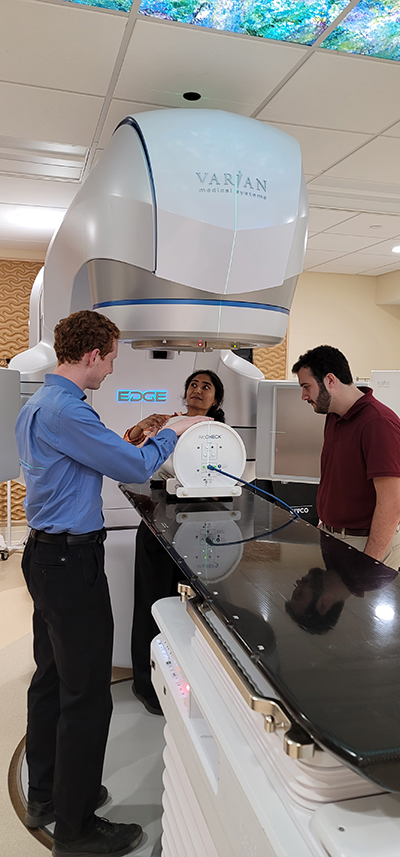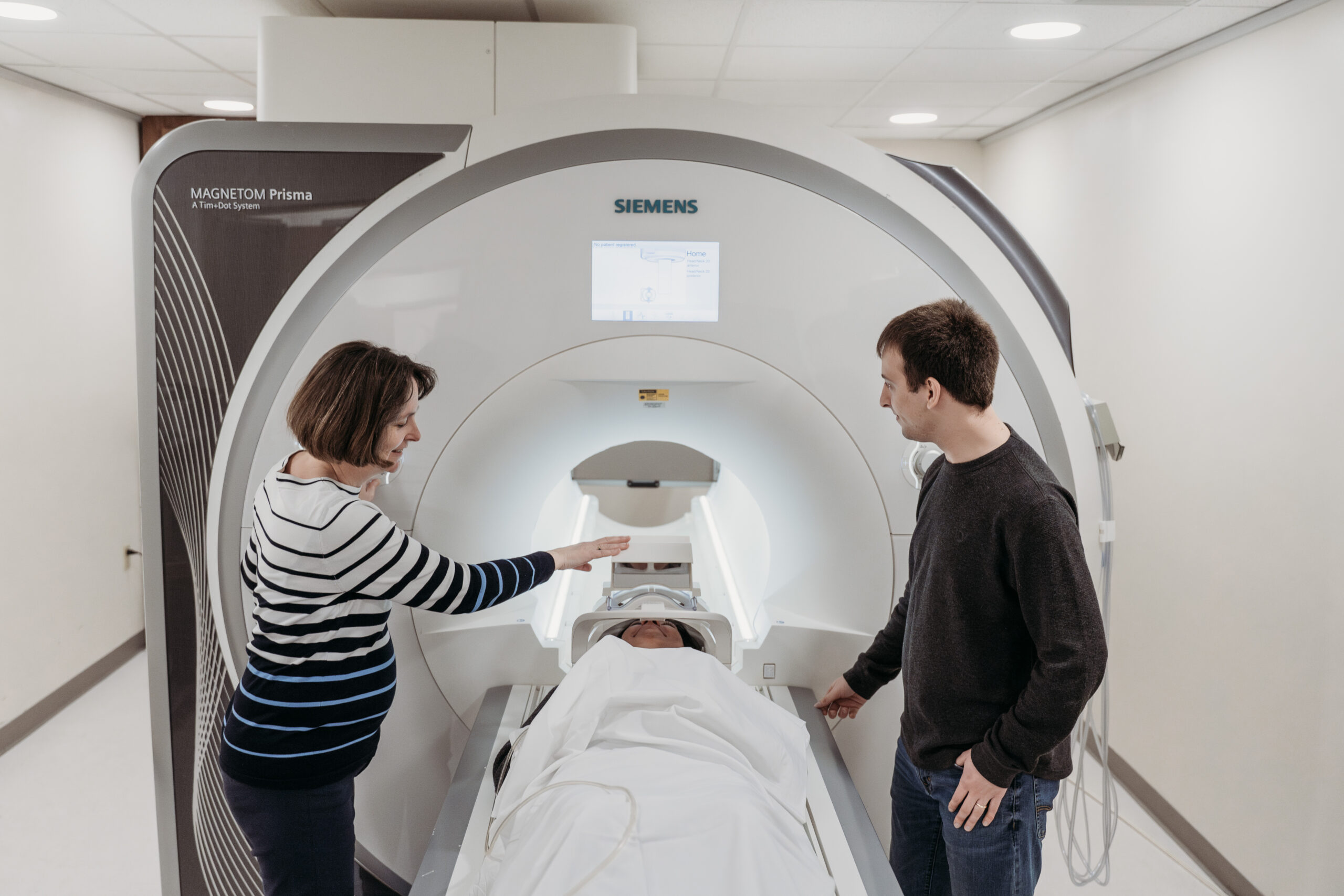
Medical physics is an applied branch of physics that applies physical energy to the diagnosis and treatment of disease. Professional medical physicists are involved in clinical service, consultation, research and teaching.
At Purdue, the medical physics graduate program provides a strong foundation in radiological and applied physics training within the medical physics profession — but also offers advanced coursework, clinical laboratories, internships and opportunities to participate in cutting-edge research. The medical physics program is closely aligned with biophysics, biomedical engineering, medicine and health physics (radiation protection and control).
Our goal is to provide courses and experience with clinical systems to enhance problem-solving skills and individual thought to further advance the field of medical physics.
The Purdue medical physics program is CAMPEP-accredited.
A program must publicly describe the program and the achievements of its graduates and students, preferably through a publicly accessible web site. This information must be updated no less often than annually and must include, for each degree program (MS and/or PhD), the number of: applicants to the program, students offered admission, students matriculated, and graduates. Where possible, information on the destinations of graduates must also be provided, i.e., residencies, industry positions, etc.
Student Papers and Presentations

Degree Type:
Certificate,
Master’s, Doctoral
Program Length:
Certificate: 9 months (only students with prior PhD are eligible)
PhD: 4-5 years entering with BS, 2-3 years entering with MS
Location:
West Lafayette, IN
Department/School:
School of Health Sciences
You will have the opportunity to work directly with medical physics faculty on interdisciplinary projects to advance understanding of image-guided and biology-based therapy; diagnostic imaging of cancer, neurological function and disease; and new uses of particle beams in detection and treatment.

Applications submitted prior to January 10, 2023 will be considered for fellowships and awards.
Applicants to the MP program are expected to have an undergraduate degree in physics, engineering or comparable academic training, such as Purdue’s B.S. degree in Pre-Medical Physics. Minimum undergraduate coursework typically include:
Students that have not completed prior coursework in anatomy and physiology upon entry into the program are required to take a 2-semester sequence of anatomy and physiology (BIOL 301/302 or BIOL 203/204). Alternate plans of study are available for students that do not have the equivalent of a B.S. or minor in physics. Students with other deficiencies in their undergraduate curriculum may be accepted or conditionally accepted into the program at the discretion of Head of the School. Students accepted on a conditional basis may be required to take additional 100, 200, 300 or 400 level classes to address coursework deficiencies. A grade of B or better in all 100, 200, 300 or 400 level classes and a cumulative GPA of 3.0 or better at Purdue University is required for students accepted on a conditional basis. Upon completing the identified deficiencies, the Head of the School, in consultation with the RHS Program Director and GC Chair, re-evaluate the admission status of conditionally accepted students and either accept or deny admission into the MP graduate program. Conditionally accepted students that are ultimately denied admission into the MP program are counseled on possibly alternate degree paths at Purdue as well as alternative career paths.